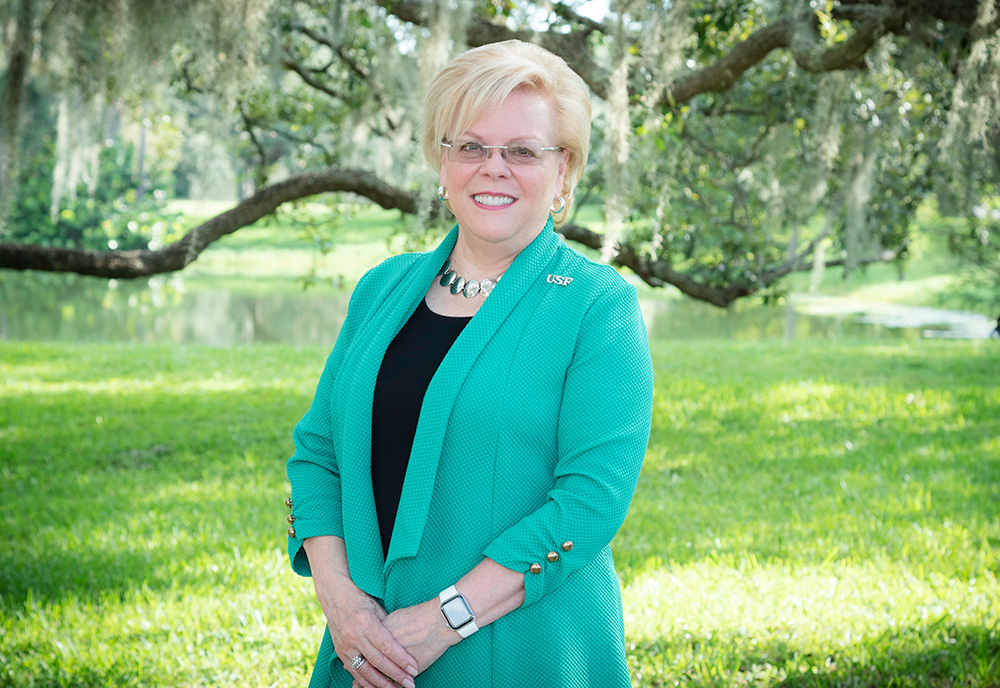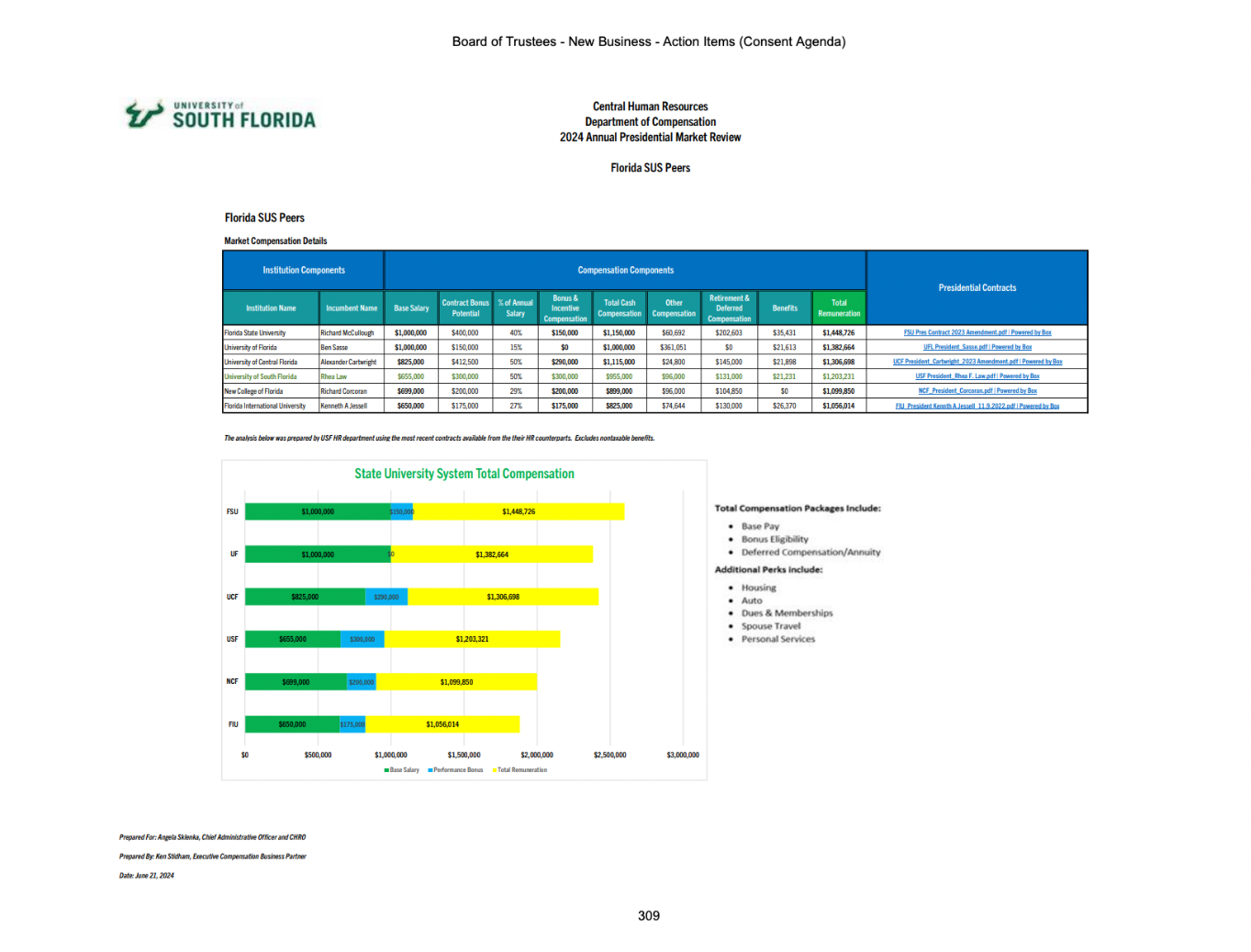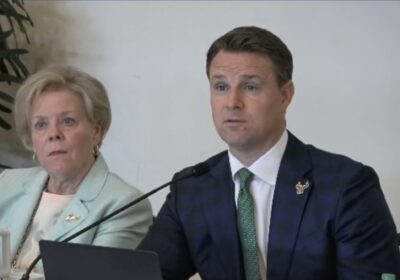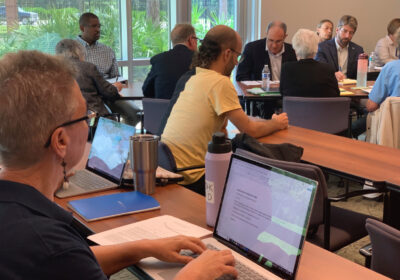USF president Rhea Law gets $282K raise, discusses future goals

USF President Rhea Law’s new salary was approved at Tuesday’s Board of Trustees (BOT) meeting, giving her a 30% raise.
With the newly approved $282,000 increase, Law’s original salary of $655,000 went up to $825,000.
Gerard Solis, from the Office of General Counsel, said $250,000 of the salary is covered by public contribution, while all other funds come from private sources available for that purpose.
Solis said in an Aug. 27 BOT committee meeting that the president’s compensation is usually annually reviewed. Still, the board hadn’t made any adjustments to her contract since March 2022, he said.
The raise was recommended to match other Florida university presidents’ salaries, Solis said.
“Florida State University (FSU), University of Florida (UF) and University of Central Florida (UCF) all made adjustments well over a year ago,” Solis said. “We are a little bit behind, so we’re trying to catch up on our presidential compensation.”
Board chair Will Weatherford said in the committee meeting that the delay happened because he was ensuring Law was on track with achieving her presidential goals from 2023-24.
“I think the catch-up is important because this should have been done probably six or eight months ago,” Weatherford said. “I was a little slow to the trigger, so I’ll take ownership of that.”
Because of Law’s 2023-24 achievements, her performance-based compensation also saw a $112,500 increase, meaning she can receive a bonus of $412,500 with board approval.
Suryakanth Gottipati, the student body president, said USF is quite different now compared to when he entered as a freshman three years ago — all because of Law’s “phenomenal” job.
“USF is changing day by day, and I can definitely say [Law] is the strongest reason for that,” said Gottipati. “If you ask me, you weren’t even required to do a presentation.”
“Friendly” presidential salary competition
The benchmark presented at the BOT meeting showed that Law’s compensation was closer to the New College of Florida than the two other Florida preeminent institutions, UF and FSU, Solis said.
Solis said the BOT’s final decision was to equalize, dollar for dollar, the compensation at USF with UCF — making it a “friendly” competition.
“UCF is a good comparator because it’s a metropolitan institution, research-focused and has a Health Sciences Center,” Solis said. “ UCF is neither preeminent nor AAU, but given USF’s current budget and proximity to UCF, we feel this is an appropriate market parameter for us.”

At the committee meeting, Michael Griffin, BOT Vice Chair, asked Weatherford if he was sure USF should be matching its executive salary with UCF and not UF or FSU — where both presidents get a $1 million salary.
Weatherford said that, from a political perspective, there was nothing wrong with being a bit on the “lower end.”
“When one university pushes a little bit higher, it kind of creates a reset for everybody else,” Weatherford said. “I don’t think we want to be the institution that is forcing the reset or is pushing the Board of Governors too far.”
New Year’s resolutions
After approving the new Presidential contract, the BOT reviewed Law’s 2024-25 presidential goals.
One of Law’s main goals for this term is to advance USF as “a great place to learn and work.” To do so, she promises to hire 500 faculty members over the next five years.
President of United Faculty of Florida’s USF chapter Steve Lang said, although the goal looks good on paper, professors are seeing more negative views of working at USF than they saw in the last decade.
“Competitive salaries to attract and keep faculty have always been important, but it may be a challenge to recruit these high-quality new professors because the cost of living in this area has gone up dramatically,” Lang said.
Related: USF faculty struggle to secure pay increases as Law is recommended for $282K raise
Lang said he constantly hears concerns from professors regarding diversity, equity and inclusion and the impacts on general education requirements.
“Even our faculty who think we should revise general education don’t want someone else telling them what they should or should not have in their classes,” Lang said. “That directly affects professors, and it’s a clear effort that undermines our evaluation system.”
Some of the latest state-mandated changes were the ban on using state and federal funds on diversity initiatives and modifications on general education course requirements.
Related: DEI’s future at USF: The question on everyone’s mind
Lang said, even though USF’s BOT didn’t “create these problems,” some of the goals might face serious headwinds.
“It is not simply a matter of who leads when you have arbitrary mandates,” Lang said. “Even when people just adhere and try and teach their students, it doesn’t foster a great place.”
Weatherford said he worked closely with Law to establish this year’s goals in alignment with USF’s strategic plan.
“We’re not just setting goals for [Law], but for the entire institution,” Weatherford said. “It takes a lot of time to do this right, but I think we’ve got our priorities in order and are focusing on the right things.”







